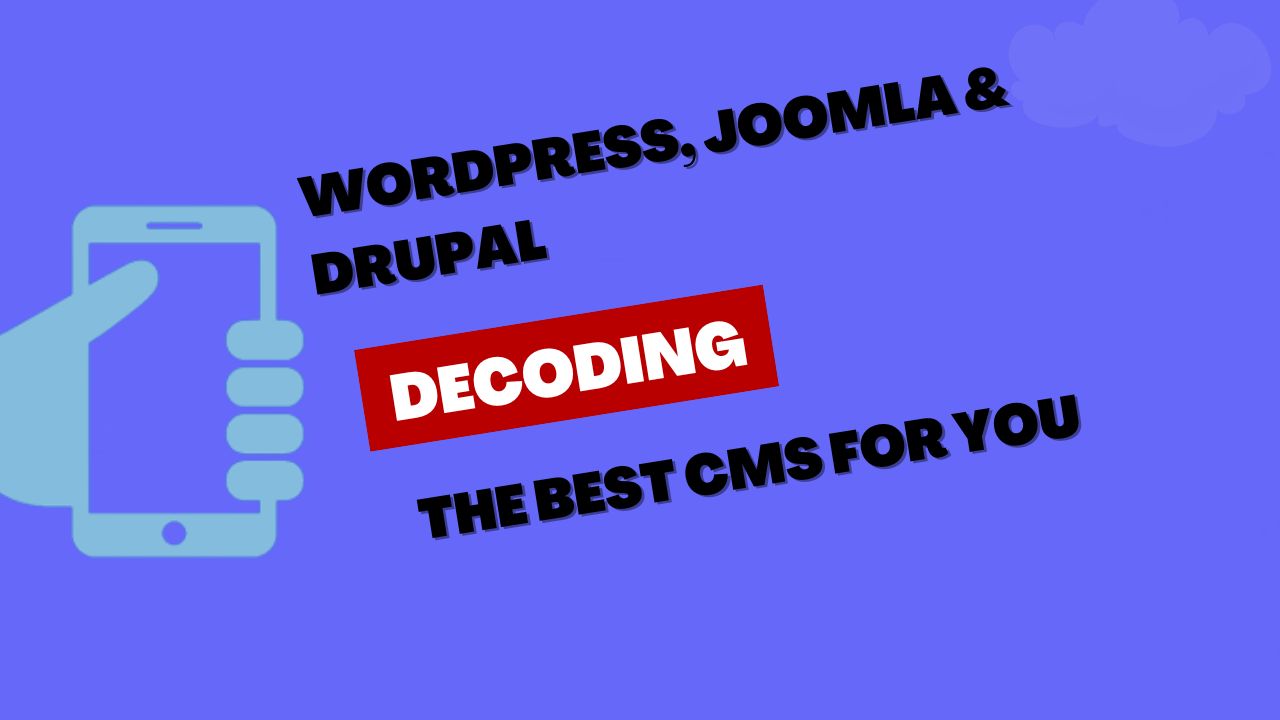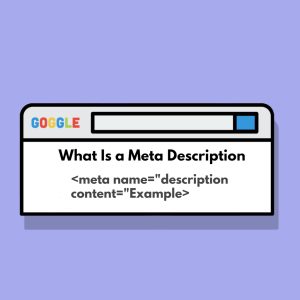Table of Content
What is a Content Management System?
A CMS is an application, software, or platform designed for users to create, publish, and manage digital content for websites or applications.
It provides themes, templates, and other creative features, including tools to manage and publish content like videos, images, graphs, documents, etc.
It allows users to develop websites and manage content in the application without requiring extensive skills.
How You Can Find The Best CMS?
Picking the best Content Management System (CMS) that is the foundation for your digital presence is essential when creating a website.
Before selecting the right software, you must have a sketch in mind about your website, content, and what you require.
So, please make a list of objectives or goals you want to achieve, as it will work as a compass for you in the sea of choices, and look at the following aspects to place your hand on the best one.
- How much you are ready to spend on it?
- Does the CMS support the kind of content you want to publish?
- The level of skills you require to operate it.
- Design quality plays a massive role in choosing the best cms.
- Level of customizability and other features they offer.
- Is it user-friendly? Easy to create and edit content on it or not.
- Security, update policy, and bug issues.
- Which technology does CMS use?
- SEO support or Search engine friendliness.
WordPress VS Drupal VS Joomla
WordPress, Drupal, and Joomla are three popular and powerful CMS options that have gained their own dedicated user communities over the years.
Each platform has its own wow factors to attract users and offers unique features, customization capabilities, and levels of complexity.
Moreover, to decide which is best for your project, it’s crucial to delve deeper into their strengths and weaknesses and consider your specific needs, technical expertise, and long-term goals.
This comparison will serve as your compass in navigating the sea of CMS choices, helping you select the right one that aligns perfectly with your website objectives.
In addition, whether you aim to create a personal blog, an e-commerce site, or a complex web application.
Understanding the differences between Joomla, WordPress, and Drupal will be the first step in setting the course for your online success.
1- WordPress
Overview
One of the most popular and robust website builders started its journey from a simple blogging site and, with time, transformed it into a complete content management system.
It is an open-source platform that helps users to develop and build any kind of website easily. This content management platform has powered millions of websites compared to the others.
Wow Factors:
- Other than web hosting, plugins, and domain costs, you are just a few clicks away from completely downloading it for 100% free.
- It is user-friendly and requires very few developing skills to operate and manage. It allows you to customize and enhance the functionality of your website.
- Thousand of free and paid optimized themes are available for design choices.
- WordPress has the biggest number of plugins compared to other CMS.
- Drag and drop editor to arrange, change, and organize media.
- Pre-designed templates and built-in block patterns to create an attractive and engaging layout.
Concerns:
- Plugins stop working when updating, and updates happen after 50 to 60 days to fix small bugs and issues. And you can experience bigger updates a few times a year.
- According to surveys, this CMS platfrom is more prone to hacking than others.
- It offers less built-in flexibility for
- Requires many plugins to use additional features, negatively impacting the speed.
For example:
Here are a few examples to see how websites built on WordPress look like The White House, TIME, Nove, Vogue, Rolling Stone, etc.
2- Joomla
Overview:
Joomla is another excellent software package in the race for the best CMS. This software design is built on a model view controller pattern that allows you to build powerful online applications.
It is most suitable for developing more customizable looking or operating websites for small businesses, corporations, magazines, government, and nonprofit organizations.
Wow Factors:
- It contains a pack of over 75 languages to let you develop and design language sites.
- It is an open-source CMS and free to download for publishing content.
- Joomla provides over 8000 extensions to enhance its functionality.
- Provides hundreds of themes, including free and paid ones.
- Have an advanced user management scheme that helps to build sites managed by multiple people, e.g., Educational sites.
- It offers good security and protects your website.
- Users get quality support through documents, community portals, and training.
Concerns:
- Unlike others, it requires users to have experience working with HTML and PHP.
- More minor updates happen every 10 to 40 days, and only one bigger update occurs yearly.
- Some extensions require coding skills, and some are paid to use.
- Offer fewer customizability options for features.
For example:
Here are a few examples of how websites built on Joomla look, like IKEA, ItWire, RogerFederer.com, Beautopia, New Heritage, etc.
3- Drupal
Overview:
Drupal is a website builder platform designed to enhance users’ digital experience by helping them develop complex applications and websites.
It is also open-source software with excellent accessibility and multilingual capabilities. Websites built using Drupal can easily handle large traffic volumes, making it suitable for bigger and more complex websites.
Wow Factors:
- It is Free to download and share with others.
- Drupal has over 40,000 modules and +2500 themes to expand site functionality and appearance.
- Excellent community support, user groups, documentation, chatrooms, etc.
- Many site management options are available to manage complex sites.
- Have built-in options for developing multilanguage sites.
- It provides excellent security and has the least infected CMS sites compared to others.
- Provides excellent control over content management.
- One security and bugfix update happens monthly; more significant updates occur twice yearly.
Concerns:
- It is not user-friendly and requires skills and knowledge to use this platform.
- Less hosting services support Drupal as compared to the other two.
- Users must have a basic understanding of HTML and coding.
- Free themes are not good enough and require payments to use go themes.
For Example:
Here are a few examples to see how websites built on Drupal look, like Arsenal FC, InStyle, Forces.net, World Wildlife Fund (WWF), etc.
Comparison For Better Understanding
| WordPress VS Joomla VS Drupal | ||
| WordPress | Joomla | Drupal |
|
|
|
|
|
|
|
|
|
|
|
|
|
|
|
|
|
|
|
|
|
|
|
|
|
|
|
|
|
|
The Final Verdict
To determine the best CMS for any project, site, or application, consider your specific needs, features, availability budget, and technical expertise:
1- WordPress
You want a user-friendly, efficient CMS for a blog, small business site, or other portfolio. It’s also great for beginners, as installing and running require few technical skills.
2- Joomla
Joomla is the best option to choose if you need to balance simplicity and flexibility, especially for managing and publishing heavy content or membership-based websites.
3- Drupal
If you need to work on a complex project with unique requirements and have the technical expertise or resources to manage it, then Drupal is the go-to option.
The choice between WordPress, Joomla, and Drupal depends on your project’s complexity, familiarity with CMS platforms, and specific goals.
Each CMS has its strengths, making it suitable for various website types. By carefully evaluating your requirements and testing the features and flexibility of each platform, you’ll be well on your way to selecting the best CMS for your web adventure.






